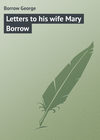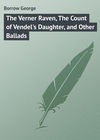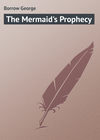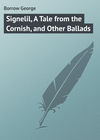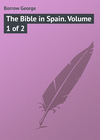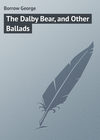Buch lesen: «Wild Wales: The People, Language, & Scenery», Seite 35
CHAPTER LXXIX
Machynlleth – Remarkable Events – Ode to Glendower – Dafydd Gam – Lawdden’s Hatchet.
Machynlleth, pronounced Machuncleth, is one of the principal towns of the district which the English call Montgomeryshire, and the Welsh Shire Trefaldwyn, or the Shire of Baldwin’s town; Trefaldwyn, or the town of Baldwin, being the Welsh name for the town which is generally termed Montgomery. It is situated in nearly the centre of the valley of the Dyfi, amidst pleasant green meadows, having to the north the river, from which, however, it is separated by a gentle hill. It possesses a stately church, parts of which are of considerable antiquity, and one or two good streets. It is a thoroughly Welsh town, and the inhabitants, who amount in number to about four thousand, speak the ancient British language with considerable purity.
Machynlleth has been the scene of remarkable events, and is connected with remarkable names, some of which have rung through the world. At Machynlleth in 1402 Owen Glendower, after several brilliant victories over the English, held a parliament in a house which is yet to be seen in the Eastern Street, and was formally crowned King of Wales; in his retinue was the venerable bard Iolo Goch, who, imagining that he now saw the old prophecy fulfilled, namely that a prince of the race of Cadwaladr should rule the Britons, after emancipating them from the Saxon yoke, greeted the chieftain with an ode to the following effect: —
Here’s the life I’ve sigh’d for long:
Abash’d is now the Saxon throng,
And Britons have a British lord
Whose emblem is the conquering sword;
There’s none I trow but knows him well
The hero of the watery dell,
Owain of bloody spear in field,
Owain his country’s strongest shield;
A sovereign bright in grandeur drest,
Whose frown affrights the bravest breast.
Let from the world upsoar on high
A voice of splendid prophecy!
All praise to him who forth doth stand
To ’venge his injured native land!
Of him, of him a lay I’ll frame
Shall bear through countless years his name:
In him are blended portents three,
Their glories blended sung shall be:
There’s Owain meteor of the glen,
The head of princely generous men;
Owain the lord of trenchant steel,
Who makes the hostile squadrons reel;
Owain besides of warlike look,
A conqueror who no stay will brook;
Hail to the lion leader gay,
Marshaller of Griffith’s war array;
The scourger of the flattering race,
For them a dagger has his face;
Each traitor false he loves to smite,
A lion is he for deeds of might;
Soon may he tear, like lion grim,
All the Lloegrians limb from limb!
May God and Rome’s blest father high
Deck him in surest panoply!
Hail to the valiant carnager,
Worthy three diadems to bear!
Hail to the valley’s belted king!
Hail to the widely conquering,
The liberal, hospitable, kind,
Trusty and keen as steel refined!
Vigorous of form he nations bows,
Whilst from his breast-plate bounty flows.
Of Horsa’s seed on hill and plain
Four hundred thousand he has slain.
The cope-stone of our nation’s he,
In him our weal, our all we see;
Though calm he looks his plans when breeding,
Yet oaks he’d break his clans when leading.
Hail to this partisan of war,
This bursting meteor flaming far!
Where’er he wends Saint Peter guard him,
And may the Lord five lives award him!
To Machynlleth on the occasion of the parliament came Dafydd Gam, so celebrated in after time; not, however, with the view of entering into the counsels of Glendower, or of doing him homage, but of assassinating him. This man, whose surname Gam signifies crooked, was a petty chieftain of Breconshire. He was small of stature, and deformed in person, though possessed of great strength. He was very sensitive of injury, though quite as alive to kindness; a thorough-going enemy and a thorough-going friend. In the earlier part of his life he had been driven from his own country for killing a man, called Big Richard of Slwch, in the High Street of Aber Honddu, or Brecon, and had found refuge in England, and kind treatment in the house of John of Gaunt, for whose son Henry, generally called Bolingbroke, he formed one of his violent friendships. Bolingbroke, on becoming King Henry the Fourth, not only restored the crooked little Welshman to his possessions, but gave him employments of great trust and profit in Herefordshire. The insurrection of Glendower against Henry was quite sufficient to kindle against him the deadly hatred of Dafydd, who swore “by the nails of God” that he would stab his countryman for daring to rebel against his friend King Henry, the son of the man who had received him in his house and comforted him, when his own countrymen were threatening his destruction. He therefore went to Machynlleth with the full intention of stabbing Glendower, perfectly indifferent as to what might subsequently be his own fate. Glendower, however, who had heard of his threat, caused him to be seized and conducted in chains to a prison which he had in the mountains of Sycharth. Shortly afterwards, passing through Breconshire with his host, he burnt Dafydd’s house, a fair edifice called the Cyrnigwen, situated on a hillock, near the river Honddu, to the ground, and seeing one of Gam’s dependents gazing mournfully on the smouldering ruins, he uttered the following taunting englyn: —
“Shouldst thou a little red man descry
Asking about his dwelling fair,
Tell him it under the bank doth lie,
And its brow the mark of the coal doth bear.”
Dafydd remained confined till the fall of Glendower, shortly after which event he followed Henry the Fifth to France, where he achieved that glory which will for ever bloom, dying covered with wounds in the field of Agincourt after saving the life of the king, to whom in the dreadest and most critical moment of the fight he stuck closer than a brother, not from any abstract feeling of loyalty, but from the consideration that King Henry the Fifth was the son of King Henry the Fourth, who was the son of the man who received and comforted him in his house, after his own countrymen had hunted him from house and land.
Connected with Machynlleth is a name not so widely celebrated as those of Glendower and Dafydd Gam, but well known to and cherished by the lovers of Welsh song. It is that of Lawdden, a Welsh bard in holy orders, who officiated as priest at Machynlleth from 1440 to 1460. But though Machynlleth was his place of residence for many years, it was not the place of his birth, Llychwr in Carmarthenshire being the spot where he first saw the light. He was an excellent poet, and displayed in his compositions such elegance of language, and such a knowledge of prosody, that it was customary long after his death, when any master-piece of vocal song or eloquence was produced, to say that it bore the traces of Lawdden’s hatchet. At the request of Griffith ap Nicholas, a powerful chieftain of South Wales, and a great patron of the muse, he drew up a statute relating to poets and poetry, and at the great Eisteddfod, or poetical congress, held at Carmarthen, in the year 1450, under the auspices of Griffith, which was attended by the most celebrated bards of the north and south, he officiated as judge in conjunction with the chieftain upon the compositions of the bards who competed for the prize, a little silver chair. Not without reason, therefore, do the inhabitants of Machynlleth consider the residence of such a man within their walls, though at a far, bygone period, as conferring a lustre on their town, and Lewis Meredith has probability on his side when, in his pretty poem on Glen Dyfi, he says: —
“Whilst fair Machynlleth decks thy quiet plain
Conjoined with it shall Lawdden’s name remain.”
CHAPTER LXXX
The Old Ostler – Directions – Church of England Man – The Deep Dingle – The Two Women – The Cutty Pipe – Waen y Bwlch – The Deaf and Dumb – The Glazed Hat.
I rose on the morning of the 2nd of November intending to proceed to the Devil’s Bridge, where I proposed halting a day or two in order that I might have an opportunity of surveying the far-famed scenery of that locality. After paying my bill, I went into the yard to my friend the old ostler, to make inquiries with respect to the road.
“What kind of road,” said I, “is it to the Devil’s Bridge?”
“There are two roads, sir, to the Pont y Gwr Drwg; which do you mean to take?”
“Why do you call the Devil’s Bridge the Pont y Gwr Drwg, or the bridge of the evil man?”
“That we may not bring a certain gentleman upon us, sir, who doesn’t like to have his name taken in vain.”
“Is there much difference between the roads?”
“A great deal, sir; one is over the hills, and the other round by the valleys.”
“Which is the shortest?”
“O that over the hills, sir; it is about twenty miles from here to the Pont y Gwr Drwg over the hills, but more than twice that by the valleys.”
“Well, I suppose you would advise me to go by the hills.”
“Certainly, sir. That is, if you wish to break your neck, or to sink in a bog, or to lose your way, or perhaps, if night comes on, to meet the Gwr Drwg himself taking a stroll. But to talk soberly. The way over the hills is an awful road, and indeed for the greater part is no road at all.”
“Well, I shall go by it. Can’t you give me some directions?”
“I’ll do my best, sir; but I tell you again that the road is a horrible one, and very hard to find.”
He then went with me to the gate of the inn, where he began to give me directions, pointing to the south, and mentioning some names of places through which I must pass, amongst which were Waen y Bwlch and Long Bones; at length he mentioned Pont Erwyd, and said, “If you can but get there you are all right, for from thence there is a very fair road to the bridge of the evil man. Though I dare say if you get to Pont Erwyd – and I wish you may get there – you will have had enough of it, and will stay there for the night, more especially as there is a good inn.”
Leaving Machynlleth, I ascended a steep hill which rises to the south of it. From the top of this hill there is a fine view of the town, the river and the whole valley of Dyfi. After stopping for a few minutes to enjoy the prospect I went on. The road at first was exceedingly good, though up and down, and making frequent turnings. The scenery was beautiful to a degree, lofty hills were on either side clothed most luxuriantly with trees of various kinds, but principally oaks. “This is really very pleasant,” said I, “but I suppose it is too good to last long.” However, I went on for a considerable way, the road neither deteriorating nor the scenery decreasing in beauty; “surely I can’t be in the right road,” said I; “I wish I had an opportunity of asking.” Presently seeing an old man working with a spade in a field near a gate, I stopped and said in Welsh, “Am I in the road to the Pont y Gwr Drwg?” The old man looked at me for a moment, then shouldering his spade he came up to the gate, and said in English, “In truth, sir, you are.”
“I was told that the road thither was a very bad one,” said I, “but this is quite the contrary.”
“This road does not go much farther, sir,” said he; “it was made to accommodate grand folks who live about here.”
“You speak very good English,” said I; “where did you get it?”
He looked pleased, and said that in his youth he had lived some years in England.
“Can you read?” said I.
“O yes,” said he, “both Welsh and English.”
“What have you read in Welsh?” said I.
“The Bible and Twm O’r Nant.”
“What pieces of Twm O’r Nant have you read?”
“I have read two of his interludes and his life.”
“And which do you like best – his life or his interludes.”
“O, I like his life best.”
“And what part of his life do you like best?”
“O, I like that part best where he gets the ship into the water at Abermarlais.”
“You have a good judgment,” said I; “his life is better than his interludes, and the best part of his life is where he describes his getting the ship into the water. But do the Methodists about here in general read Twm O’r Nant?”
“I don’t know,” said he; “I am no Methodist.”
“Do you belong to the Church?”
“I do.”
“And why do you belong to the Church?”
“Because I believe it is the best religion to get to heaven by.”
“I am much of your opinion,” said I. “Are there many Church-people about here?”
“Not many,” said he, “but more than when I was young.”
“How old are you?”
“Sixty-nine.”
“You are not very old,” said I.
“Ain’t I? I only want one year of fulfilling my proper time on earth.”
“You take things very easily,” said I.
“Not so very easily, sir; I have often my quakings and fears, but then I read my Bible, say my prayers, and find hope and comfort.”
“I really am very glad to have seen you,” said I; “and now can you tell me the way to the bridge?”
“Not exactly, sir, for I have never been there, but you must follow this road some way farther, and then bear away to the right along yon hill” – and he pointed to a distant mountain.
I thanked him, and proceeded on my way. I passed through a deep dingle, and shortly afterwards came to the termination of the road; remembering, however, the directions of the old man, I bore away to the right, making for the distant mountain. My course lay now over very broken ground, where there was no path – at least that I could perceive. I wandered on for some time; at length, on turning round a bluff, I saw a lad tending a small herd of bullocks. “Am I in the road,” said I, “to the Pont y Gwr Drwg?”
“Nis gwn! I don’t know,” said he sullenly. “I am a hired servant, and have only been here a little time.”
“Where’s the house,” said I, “where you serve?”
But as he made no answer I left him. Some way further on I saw a house on my left, a little way down the side of a deep dingle, which was partly overhung with trees, and at the bottom of which a brook murmured. Descending a steep path, I knocked at the door. After a little time it was opened, and two women appeared, one behind the other. The first was about sixty; she was very powerfully made, had stern grey eyes and harsh features, and was dressed in the ancient Welsh female fashion, having a kind of riding-habit of blue, and a high conical hat like that of the Tyrol. The other seemed about twenty years younger; she had dark features, was dressed like the other, but had no hat. I saluted the first in English, and asked her the way to the Bridge. Whereupon she uttered a deep guttural “augh” and turned away her head, seemingly in abhorrence. I then spoke to her in Welsh, saying I was a foreign man – I did not say a Saxon – was bound to the Devil’s Bridge, and wanted to know the way. The old woman surveyed me sternly for some time, then turned to the other and said something, and the two began to talk to each other, but in a low, buzzing tone, so that I could not distinguish a word. In about half-a-minute the eldest turned to me, and extending her arm, and spreading out her five fingers wide, motioned to the side of the hill in the direction which I had been following.
“If I go that way shall I get to the bridge of the evil man?” said I; but got no other answer than a furious grimace and violent agitations of the arm and fingers in the same direction. I turned away, and scarcely had I done so when the door was slammed to behind me with great force, and I heard two “aughs,” one not quite so deep and abhorrent as the other, probably proceeding from the throat of the younger female.
“Two regular Saxon-hating Welsh women,” said I, philosophically; “just the same sort, no doubt, as those who played such pranks on the slain bodies of the English soldiers, after the victory achieved by Glendower over Mortimer on the Severn’s side.”
I proceeded in the direction indicated, winding round the side of the hill, the same mountain which the old man had pointed out to me some time before. At length, on making a turn, I saw a very lofty mountain in the far distance to the south-west, a hill right before me to the south, and on my left a meadow overhung by the southern hill, in the middle of which stood a house, from which proceeded a violent barking of dogs. I would fain have made immediately up to it for the purpose of inquiring my way, but saw no means of doing so, a high precipitous bank lying between it and me. I went forward and ascended the side of the hill before me, and presently came to a path running east and west. I followed it a little way towards the east. I was now just above the house, and saw some children and some dogs standing beside it. Suddenly I found myself close to a man who stood in a hollow part of the road from which a narrow path led down to the house; a donkey with panniers stood beside him. He was about fifty years of age, with a carbuncled countenance, high but narrow forehead, grey eyebrows, and small, malignant grey eyes. He had a white hat with narrow eaves, and the crown partly knocked out, a torn blue coat, corduroy breeches, long stockings and high-lows. He was sucking a cutty pipe, but seemed unable to extract any smoke from it. He had all the appearance of a vagabond, and of a rather dangerous vagabond. I nodded to him, and asked him in Welsh the name of the place. He glared at me malignantly, then taking the pipe out of his mouth, said that he did not know, that he had been down below to inquire and light his pipe, but could get neither light nor answer from the children. I asked him where he came from, but he evaded the question by asking where I was going to.
“To the Pont y Gwr Drwg,” said I.
He then asked me if I was an Englishman.
“O yes!” said I, “I am Carn Sais;” whereupon with a strange mixture in his face of malignity and contempt, he answered in English that he didn’t understand me.
“You understood me very well,” said I, without changing my language, “till I told you I was an Englishman. Harkee, man with the broken hat, you are one of the bad Welsh, who don’t like the English to know the language, lest they should discover your lies and rogueries.” He evidently understood what I said, for he gnashed his teeth though he said nothing. “Well,” said I, “I shall go down to those children and inquire the name of the house,” and I forthwith began to descend the path, the fellow uttering a contemptuous “humph” behind me, as much as to say, much you’ll make out down there. I soon reached the bottom, and advanced towards the house. The dogs had all along been barking violently; as I drew near to them, however, they ceased, and two of the largest came forward wagging their tails. “The dogs were not barking at me,” said I, “but at that vagabond above.” I went up to the children; they were four in number, two boys and two girls, all red-haired, but tolerably good-looking. They had neither shoes nor stockings. “What is the name of this house?” said I to the eldest, a boy about seven years old. He looked at me, but made no answer. I repeated my question; still there was no answer, but methought I heard a humph of triumph from the hill. “Don’t crow quite yet, old chap,” thought I to myself, and putting my hand into my pocket, I took out a penny; and offering it to the child, said, “Now, small man, Peth wy y enw y lle hwn?” Instantly the boy’s face became intelligent, and putting out the fat little hand, he took the ceiniog, and said in an audible whisper, “Waen y Bwlch.” “I am all right,” said I to myself, “that is one of the names of the places which the old ostler said I must go through.” Then addressing myself to the child, I said, “Where’s your father and mother?”
“Out on the hill,” whispered the child.
“What’s your father?”
“A shepherd.”
“Good,” said I. “Now can you tell me the way to the bridge of the evil man?” But the features became blank, the finger was put to the mouth, and the head was hung down. That question was evidently beyond the child’s capacity. “Thank you!” said I, and turning round, I regained the path on the top of the bank. The fellow and his donkey were still there. “I had no difficulty,” said I, “in obtaining information; the place’s name is Waen y Bwlch. But oes genoch dim Cumraeg – you have no Welsh.” Thereupon I proceeded along the path in the direction of the east. Forthwith the fellow said something to his animal, and both came following fast behind. I quickened my pace, but the fellow and his beast were close in my rear. Presently I came to a place where another path branched off to the south. I stopped, looked at it, and then went on, but scarcely had done so when I heard another exulting “humph” behind. “I am going wrong,” said I to myself; “that other path is the way to the Devil’s Bridge, and the scamp knows it, or he would not have grunted.” Forthwith I faced round, and brushing past the fellow without a word turned into the other path and hurried along it. By a side glance which I cast I could see him staring after me; presently, however, he uttered a sound very much like a Welsh curse, and kicking his beast proceeded on his way, and I saw no more of him. In a little time I came to a slough which crossed the path. I did not like the look of it at all; and to avoid it ventured upon some green mossy-looking ground to the left, and had scarcely done so when I found myself immersed to the knees in a bog. I, however, pushed forward, and with some difficulty got to the path on the other side of the slough. I followed the path, and in about half-an-hour saw what appeared to be houses at a distance. “God grant that I may be drawing near some inhabited place,” said I. The path now grew very miry, and there were pools of water on either side. I moved along slowly. At length I came to a place where some men were busy in erecting a kind of building. I went up to the nearest and asked him the name of the place. He had a crow-bar in his hand, was half-naked, had a wry mouth and only one eye. He made me no answer, but moved and gibbered at me.
“For God’s sake,” said I, “don’t do so, but tell me where I am!” He still uttered no word, but mowed and gibbered yet more frightfully than before. As I stood staring at him another man came to me and said in broken English, “It is of no use speaking to him, sir, he is deaf and dumb.”
“I am glad he is no worse,” said I, “for I really thought he was possessed with the evil one. My good person, can you tell me the name of this place?”
“Esgyrn Hirion, sir,” said he.
“Esgyrn Hirion,” said I to myself; “Esgyrn means bones, and Hirion means long. I am doubtless at the place which the old ostler called Long Bones. I shouldn’t wonder if I get to the Devil’s Bridge to-night after all.” I then asked the man if he could tell me the way to the bridge of the evil man, but he shook his head and said that he had never heard of such a place, adding, however, that he would go with me to one of the overseers, who could perhaps direct me. He then proceeded towards a row of buildings, which were in fact those objects which I had guessed to be houses in the distance. He led me to a corner house, at the door of which stood a middle-aged man, dressed in a grey coat, and saying to me, “This person is an overseer,” returned to his labour. I went up to the man, and saluting him in English, asked whether he could direct me to the devil’s bridge, or rather to Pont Erwyd.
“It would be of no use directing you, sir,” said he, “for with all the directions in the world it would be impossible for you to find the way. You would not have left these premises five minutes before you would be in a maze, without knowing which way to turn. Where do you come from?”
“From Machynlleth,” I replied.
“From Machynlleth!” said he. “Well, I only wonder you ever got here, but it would be madness to go further alone.”
“Well,” said I, “can I obtain a guide?”
“I really don’t know,” said he; “I am afraid all the men are engaged.”
As we were speaking a young man made his appearance at the door from the interior of the house. He was dressed in a brown short coat, had a glazed hat on his head, and had a pale but very intelligent countenance.
“What is the matter?” said he to the other man.
“This gentleman,” replied the latter, “is going to Pont Erwyd, and wants a guide.”
“Well,” said the young man, “we must find him one. It will never do to let him go by himself.”
“If you can find me a guide,” said I, “I shall be happy to pay him for his trouble.”
“O, you can do as you please about that,” said the young man; “but, pay or not, we would never suffer you to leave this place without a guide, and as much for our own sake as yours, for the directors of the company would never forgive us if they heard we had suffered a gentleman to leave these premises without a guide, more especially if he were lost, as it is a hundred to one you would be if you went by yourself.”
“Pray,” said I, “what company is this, the directors of which are so solicitous about the safety of strangers?”
“The Potosi Mining Company,” said he, “the richest in all Wales. But pray walk in and sit down, for you must be tired.”











